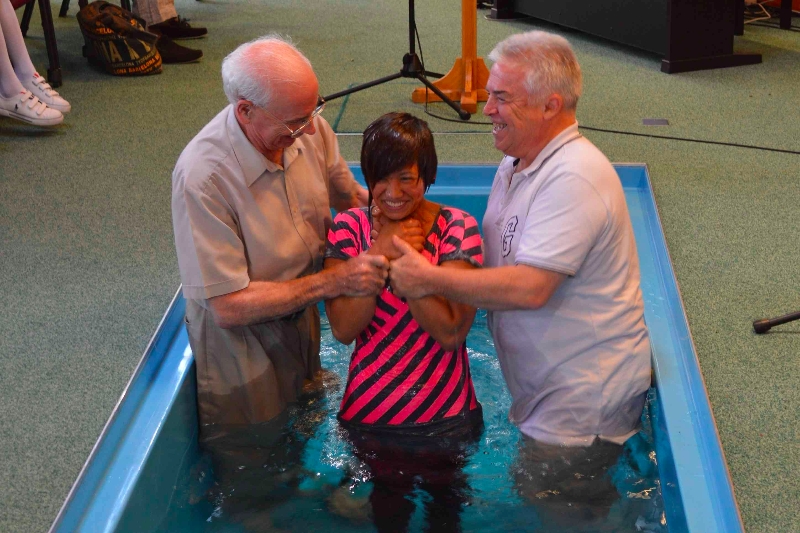The Baptist Church is a unique expression of Christian faith that has evolved over the centuries, underscoring the profound importance of individual conviction and communal life. As part of the larger Christian tradition, the Baptist denomination emphasizes believer’s baptism and congregational governance, offering believers a distinctive perspective on the relationship between faith and community. To explore this, one must delve into the historical origins, core tenets, and vibrant community life that characterize Baptist congregations.
Historically, the roots of the Baptist movement can be traced to the 17th century in England, emerging during the Protestant Reformation. Dissatisfied with the rigid structures of both the Anglican Church and Roman Catholicism, early Baptists sought a more personal and biblically-grounded approach to faith. They sought to reclaim the beliefs that the New Testament espoused, embracing the principle of individual autonomy in matters of faith and practice. This desire for a personal relationship with God laid the groundwork for the Baptist emphasis on believer’s baptism, affirming the notion that faith must precede baptism.
Believer’s baptism is a cardinal tenet within the Baptist tradition. It underscores an individual’s conscious decision to follow Christ, asserting that baptism should be an act of personal faith rather than a ritual performed on infants. Drawing on scriptural precedents, Baptists argue that baptism is a public declaration of faith, where the individual is submerged in water—a symbol of death to the old self and rebirth into a new life in Christ. This practice not only affirms the personal decision to follow Jesus but also signifies inclusion in the community of believers. The act of baptism thus becomes a communal celebration, signifying acceptance into the familial aspect of the church.
The theological divergence surrounding baptism is pivotal. Many Christian denominations practice infant baptism, viewing it as a means of grace conferred by the church. In stark contrast, Baptists champion the belief that faith is a personal journey requiring conscious understanding and acceptance of Jesus Christ as Lord and Savior. This particular doctrine empowers individuals, enabling them to approach their faith with a sense of agency and ownership. Consequently, the baptismal event takes on profound meaning—transforming it into an occasion for spiritual renewal and communal solidarity.
Congregational life within the Baptist Church is equally salient. Baptists strongly advocate for church autonomy, allowing individual congregations to govern themselves without hierarchical interference. This democratic approach fosters an environment where members can actively engage in church affairs. Decisions regarding ministry, worship, and governance are typically made collectively, reflecting a fundamental commitment to the priesthood of all believers. In this setting, each member’s voice carries weight, instilling a sense of belonging and responsibility toward the church community.
This model of governance not only encourages participation but also fosters a spirit of accountability and mutual edification. Regular gatherings, ranging from worship services to small group meetings, create opportunities for fellowship, prayer, and the sharing of spiritual gifts. The dynamic interplay of members’ diverse experiences enriches the communal life, encouraging growth and learning. Moreover, this emphasis on shared responsibility nurtures an environment where individuals are empowered to exercise their spiritual gifts, thus contributing to the church’s mission in unique ways.
The communal character of Baptist congregations extends beyond worship and governance into acts of service and outreach. Engaging in community service, missionaries, and social justice initiatives encapsulates the belief that faith must be lived out in action. Baptists are often at the forefront of addressing societal needs, advocating for the marginalized, and fostering hope in despairing situations. This commitment to serve not only enriches the lives of those in need but also strengthens the bond among congregants, as they collectively strive to live out the teachings of Christ.
However, the Baptist Church is not without its challenges. The diversity of beliefs and practices within the denomination sometimes results in tension, as different congregations interpret Scripture in varying ways. While this inter-congregational diversity enriches the larger Baptist identity, it also calls for dialog and understanding. The necessity for unity in the midst of diversity is crucial, reminding Baptists of their shared faith journey and common mission in Christ.
In light of these complexities, the future of the Baptist Church may hinge on its ability to remain relevant in an ever-changing world. As cultural shifts impact the landscape of religion, Baptists are challenged to re-evaluate their practices and outreach methods. The call for repentance and renewal transcends mere institutional changes; it beckons members to engage deeply with their faith and uphold the fundamental tenets of love, grace, and compassion.
As one navigates the intricate tapestry of Baptist beliefs and practices, it becomes evident that the journey is as important as the destination. Through the lens of believer’s baptism and congregational life, one can glimpse the profound transformation that occurs when individuals commit their lives to Christ within a supportive community. The ensuing journey fosters authentic connections, eliciting growth not only individually but collectively. In examining this distinctive expression of faith, a sense of curiosity is piqued—a yearning to understand how personal belief and communal life intertwine to shape the experience of faith in a complex world.
Ultimately, the Baptist Church invites both seekers and believers to embark on a journey of faith that transcends individualism, propelling them into the enriching experience of community where they can grow, serve, and rejoice together in the promises of Christ.



